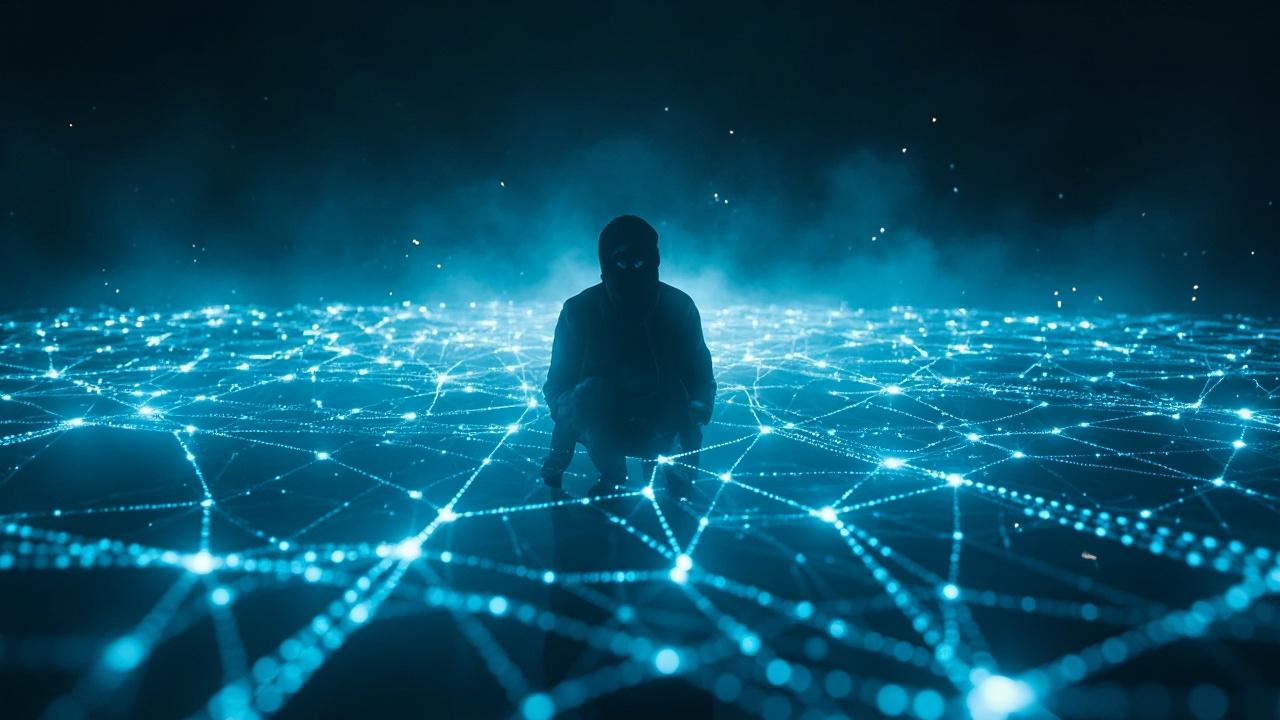Introduction
Cybercrime defense Los Angeles is increasingly critical. The digital landscape of Los Angeles, with its thriving economy and concentration of tech-savvy individuals and businesses, makes it a prime target for malicious actors. The statistics paint a concerning picture: Los Angeles County alone has seen a dramatic rise in cybercrime incidents, with millions of dollars lost to scams, data breaches, and online fraud each year. Phishing attacks, in particular, have surged, preying on unsuspecting individuals and organizations.
Cybercrime encompasses a broad range of illegal activities conducted through computers and networks. These include hacking (unauthorized access to computer systems), phishing (deceptive attempts to obtain sensitive information), and online fraud (encompassing identity theft, financial scams, and other deceptive practices). The sophistication of these attacks is constantly evolving, making it increasingly difficult to detect and prevent them. Los Angeles, with its interconnected digital infrastructure, is particularly vulnerable.
This blog post aims to provide a comprehensive overview of the cybercrime landscape in Los Angeles. We will delve into the most prevalent types of cyber threats facing residents and businesses, offering practical advice on how to proactively protect themselves. Furthermore, we will examine the legal ramifications of cybercrime, outlining the options available to those who find themselves accused of such offenses.
Understanding the Landscape
Los Angeles, a hub of innovation and commerce, is unfortunately also a prime target for cybercriminals. The city’s vibrant economy and high concentration of tech companies create a fertile ground for various types of online offenses. From individual citizens to large corporations, everyone is potentially vulnerable to these evolving threats. Recognizing the different forms cybercrime takes is the first step in defending against them.
Phishing Scams
Phishing remains one of the most prevalent and insidious forms of cybercrime. In Los Angeles, countless individuals and businesses are bombarded daily with deceptive emails, messages, and websites designed to steal sensitive information. These scams often impersonate legitimate organizations like banks, government agencies, or popular online services. Spear phishing, a more targeted form, focuses on specific individuals or groups within an organization, using personalized information to increase the likelihood of success.
Whaling, an even more refined approach, targets high-profile executives or individuals with significant access to valuable data. For example, there have been recent reports of phishing scams specifically targeting employees of entertainment studios in Los Angeles, attempting to steal intellectual property or financial information. It is critical to remain vigilant and skeptical of any unsolicited communication requesting personal or financial data.
Hacking Incidents
Hacking incidents are another significant concern for Los Angeles residents and businesses. These incidents range from website defacements and data breaches to sophisticated ransomware attacks that can cripple entire organizations.
In recent years, several LA-based companies have experienced significant data breaches, resulting in the exposure of sensitive customer information and substantial financial losses. Hackers employ a variety of techniques, including malware (malicious software), SQL injection (exploiting vulnerabilities in databases), and brute-force attacks (repeatedly guessing passwords), to gain unauthorized access to computer systems and networks.
The consequences of these attacks can be devastating, leading to financial loss, reputational damage, and legal liabilities. Individuals and businesses should prioritize implementing robust security measures and seeking expert assistance to protect against these threats. Securing your systems is a crucial element of cybercrime defense los angeles.
Online Fraud and Identity Theft
Online fraud and identity theft are rampant in the digital age, and Los Angeles is no exception. These crimes take many forms, including credit card fraud, investment scams, and romance scams. Identity theft occurs when someone steals your personal information, such as your Social Security number, bank account details, or credit card numbers, and uses it to commit fraud or other crimes.
The consequences of identity theft can be devastating, leading to financial ruin, damaged credit scores, and emotional distress. Protecting your online identity requires vigilance and a proactive approach, including regularly monitoring your credit reports, using strong passwords, and being wary of suspicious online offers or requests for personal information.
Prevention Is Key
A digital fortress is only as strong as its weakest link, and in Los Angeles, that link is often the individual user or small business owner who hasn’t taken adequate steps to protect themselves from cyber threats. Proactive cybersecurity isn’t just for large corporations with dedicated IT departments; it’s a necessity for anyone who uses the internet. A multi-layered approach to security is crucial, combining strong technical defenses with user education and awareness.
This includes training employees to recognize phishing attempts and implementing policies that promote secure computing practices. Failing to implement these measures can expose you to a myriad of threats, ranging from data breaches that compromise customer information to ransomware attacks that cripple your business operations.
Strong Passwords and Multi-Factor Authentication (MFA)
The foundation of any good cyber security strategy is robust password management. Gone are the days of using simple, easily-guessable passwords like “password123” or your pet’s name. Instead, aim for passwords that are at least 12 characters long and include a mix of upper and lowercase letters, numbers, and symbols. Even better, utilize a password manager to generate and store complex passwords for all your online accounts.
But passwords alone are no longer enough. Multi-factor authentication (MFA) adds an extra layer of security by requiring a second form of verification, such as a code sent to your phone or an authentication app, in addition to your password. This makes it much harder for hackers to gain access to your accounts, even if they manage to steal your password.
Software Updates and Anti-Virus Protection
Another critical aspect of cyber security is keeping your software up-to-date. Software updates often include security patches that fix vulnerabilities that hackers can exploit. Ignoring these updates is like leaving the front door of your house unlocked. Similarly, anti-virus software is essential for detecting and removing malware from your computer.
Make sure you choose a reputable anti-virus program and keep it updated with the latest virus definitions. Regularly scan your system for malware, and be cautious about downloading files or clicking on links from unknown sources. Think of your anti-virus as the cyber security guard that stands watch to keep out any malicious threats.
Email and Website Security Best Practices
Phishing emails are a common tactic used by cybercriminals to trick people into giving up their personal information or installing malware. Be wary of emails from unknown senders, especially those that ask you to click on links or download attachments. Always verify the sender’s identity before taking any action.
When browsing websites, look for the “HTTPS” in the address bar, which indicates that the website is using encryption to protect your data. Avoid entering sensitive information on websites that don’t have HTTPS. Remember, practicing safe browsing habits and being skeptical of suspicious emails are essential components of effective cybercrime defense los angeles.
What to Do if You’ve Been Hacked or Phished in LA
If you suspect you’ve fallen victim to a cyber attack in Los Angeles, time is of the essence. Immediate action is crucial to minimize the damage and protect your personal and financial information. Your first step should be to immediately change all your passwords, especially for email, banking, and social media accounts.
Use strong, unique passwords for each account, avoiding easily guessable information like your birthday or pet’s name. If possible, enable multi-factor authentication (MFA) on all accounts that offer it. MFA adds an extra layer of security by requiring a second verification method, such as a code sent to your phone, making it significantly harder for hackers to access your accounts even if they have your password.
Next, you need to contact the relevant financial institutions and credit bureaus to alert them to the potential fraud. Report any suspicious activity on your bank accounts or credit cards immediately. Consider placing a fraud alert on your credit report to make it more difficult for identity thieves to open new accounts in your name. You should also monitor your credit report closely for any unauthorized activity. Furthermore, it is important to report the incident to the authorities.
The FBI’s Internet Crime Complaint Center (IC3) is the central hub for reporting internet-related crimes. Filing a report with IC3 provides law enforcement with valuable information that can help them investigate and prosecute cybercriminals. Moreover, carefully preserve any evidence related to the incident, such as phishing emails, screenshots of suspicious activity, and records of communication with the involved parties. This evidence can be invaluable in investigating the incident and potentially recovering any losses.
Following those immediate steps, a thorough assessment of the damage is required. Determine which accounts and data have been compromised. This may involve reviewing your bank statements, credit reports, and online account activity for any unauthorized transactions or changes. Assess the extent of the breach and identify any sensitive information that may have been exposed, such as social security numbers, financial account numbers, or personal identification information. Implement damage control measures to mitigate the impact of the breach.
This may involve closing compromised accounts, canceling credit cards, and notifying affected parties. For businesses, this may involve notifying customers, employees, and regulatory agencies as required by law. Seeking expert assistance is recommended to navigate the complexities of data breaches and ensure compliance with all applicable regulations. Remember that seeking counsel for cybercrime defense los angeles could be a vital step at this stage.
- Change passwords immediately.
- Contact financial institutions and credit bureaus.
- Report the incident to the authorities (FBI’s IC3).
- Preserve evidence.
Understanding Cybercrime Laws in California and Federal Regulations
California has specific laws designed to combat computer crimes. Several sections of the California Penal Code address these offenses, including unauthorized access to computer systems and identity theft. For example, accessing a computer system or network without permission is a crime, with penalties that can range from fines to imprisonment, depending on the severity of the offense and any prior criminal history.
Similarly, California law addresses the issue of identity theft, making it illegal to knowingly use someone else’s personal information for financial gain or to commit fraud. These state laws are crucial in prosecuting cybercriminals operating within California’s borders.

On the federal level, the Computer Fraud and Abuse Act (CFAA) is a key piece of legislation used to prosecute a wide range of cybercrimes. The CFAA prohibits activities such as accessing a computer without authorization or exceeding authorized access to obtain information, damage computer systems, or commit fraud. This law gives federal law enforcement agencies significant authority to investigate and prosecute cybercrimes that cross state lines or affect national security.
Given the reach of the internet, many cybercrime cases fall under federal jurisdiction, making the CFAA a vital tool in combating these offenses. The expertise of cybercrime defense Los Angeles professionals can be pivotal in navigating these complex legal landscapes.
The cooperation between state and federal authorities is essential in addressing cybercrime effectively. Cybercrime investigations often involve coordinating resources and sharing information between local, state, and federal agencies. This collaboration is particularly important in cases involving complex schemes that span multiple jurisdictions or involve sophisticated technologies.
For example, a phishing scam originating in California but targeting victims across the country might require the joint efforts of the California Department of Justice and the FBI. By working together, these agencies can leverage their respective expertise and resources to bring cybercriminals to justice.
Defending Against Cybercrime Accusations in Los Angeles
Navigating cybercrime accusations in Los Angeles requires a nuanced understanding of the law and a proactive defense strategy. Individuals facing such charges often find themselves in a complex legal landscape, where the stakes are high, and the prosecution’s case can be built on intricate technical evidence.
Common cybercrime charges range from unauthorized access to computer systems and data breaches to phishing scams and online fraud, each carrying its own set of potential penalties under both California state law and federal regulations.
Several potential defenses can be employed when fighting cybercrime charges. A core defense revolves around demonstrating a *lack of intent*. If it can be proven that the actions leading to the charges were unintentional, accidental, or the result of a misunderstanding, it can significantly weaken the prosecution’s case. Another defense strategy involves arguing *mistaken identity*, presenting evidence that the accused was not the actual perpetrator of the alleged crime.
This might involve challenging the forensic evidence or presenting alibis that place the accused elsewhere at the time of the incident. *Entrapment* is another potential defense, arguing that law enforcement improperly induced the accused to commit the crime. This defense is often difficult to prove but can be effective in certain circumstances where overzealous investigative tactics were employed. Finally, violations of the *Fourth Amendment* can be grounds for suppressing evidence obtained through illegal searches and seizures of electronic devices.
- Lack of Intent: Proving actions were unintentional.
- Mistaken Identity: Demonstrating the accused was not the perpetrator.
- Entrapment: Arguing law enforcement induced the crime.
- Fourth Amendment Violations: Challenging illegal searches and seizures.
Given the technical complexities and potential for severe consequences, securing expert legal counsel is paramount when facing cybercrime charges in Los Angeles. A lawyer specializing in *cybercrime defense Los Angeles* will possess the specific knowledge and experience needed to navigate the intricacies of cyber law, challenge forensic evidence, and build a strong defense strategy.
Furthermore, the involvement of a qualified forensic computer expert can be invaluable. These experts can analyze digital evidence, identify potential weaknesses in the prosecution’s case, and provide expert testimony to support the defense’s arguments.
Case Studies
Navigating the legal complexities of cybercrime accusations requires a nuanced understanding of technology, law, and investigative procedures. Consider, for example, a case where an individual was accused of hacking into a competitor’s database to steal trade secrets. The prosecution presented what seemed like irrefutable evidence: IP addresses linked to the defendant’s home and timestamps that coincided with the data breach.
However, the defense team, working with a skilled forensic computer expert, discovered that the defendant’s home network had been compromised by a sophisticated botnet. This botnet had masked its activity by routing traffic through numerous IP addresses, including the defendant’s, making it appear as if the defendant was the perpetrator when, in reality, their system had been exploited.
Another successful cybercrime defense case in Los Angeles involved an individual accused of orchestrating a large-scale phishing scam. The prosecution’s case hinged on emails found on the defendant’s computer, which appeared to be templates for phishing messages. The defense argued that the defendant, a cybersecurity enthusiast, was collecting these emails for research purposes, intending to analyze and understand them to improve their own security practices and to alert others about emerging threats.
The defense team was able to demonstrate through expert testimony and digital forensics that the defendant never actually sent any of the phishing emails and that their computer was, in fact, a repository of cybersecurity-related information, not a command-and-control center for a phishing operation. This highlights the critical importance of having a qualified expert on your side when it comes to any type of cybercrime defense Los Angeles situation.
These examples illustrate the critical role of a skilled legal team and a qualified forensic computer expert in mounting a successful cybercrime defense. In each case, the defense team meticulously investigated the digital evidence, challenged the prosecution’s assumptions, and presented alternative explanations that highlighted reasonable doubt. The successful outcomes demonstrate that cybercrime cases are often far more complex than they initially appear, and a robust defense strategy can make all the difference.
| Case Type | Key Defense Strategy | Outcome |
|---|---|---|
| Hacking Accusation | Demonstrated botnet compromise of defendant’s network. | Acquittal |
| Phishing Accusation | Proved defendant collected phishing emails for research, not distribution. | Charges Dismissed |
Conclusion
In conclusion, the digital landscape of Los Angeles presents a constant and evolving challenge regarding cybercrime. From the pervasive threat of phishing scams targeting vulnerable individuals to sophisticated hacking incidents impacting major corporations, the need for vigilance and proactive cybersecurity measures has never been greater. Understanding the different types of cyber threats, implementing robust preventative measures, and knowing what steps to take if victimized are crucial for navigating this complex environment.
Moreover, it is equally important to understand your rights and options if you find yourself facing accusations of cybercrime. California and federal laws are complex, and the consequences of a conviction can be severe, impacting your personal and professional life for years to come. Navigating this complex legal landscape requires the guidance of a skilled attorney experienced in cybercrime defense los angeles, who can assess the evidence, build a strong defense strategy, and protect your rights throughout the legal process.
Ultimately, staying safe and protected in the digital age requires a multi-faceted approach. It is about empowering yourself with knowledge, adopting best practices for online security, and seeking professional help when needed. Whether you are striving to safeguard your personal information, protect your business from cyberattacks, or defend against allegations of wrongdoing, remaining informed, proactive, and prepared is the best strategy for navigating the ever-present threat of cybercrime in Los Angeles.
Frequently Asked Questions
What constitutes cybercrime in Los Angeles, and what are the most common types?
Cybercrime in Los Angeles encompasses a wide range of illegal activities that exploit computer systems and networks. These activities include hacking, data breaches, identity theft, online fraud, and the distribution of malware.
Phishing schemes, where individuals are tricked into revealing sensitive information, and ransomware attacks, which hold data hostage for ransom, are also prevalent forms of cybercrime in the Los Angeles area. These crimes can target individuals, businesses, and even government entities.
What are the potential penalties for cybercrime offenses in California and federal courts in Los Angeles?
The potential penalties for cybercrime offenses in California and federal courts in Los Angeles vary significantly depending on the specific crime and the extent of the damage caused. Penalties can range from fines and probation to lengthy prison sentences.
Federal charges often carry stiffer penalties, particularly for offenses involving interstate or international activity. Restitution may also be ordered to compensate victims for their financial losses and other damages suffered as a result of the cybercrime.
What legal defenses are available to individuals accused of cybercrime in Los Angeles?
Several legal defenses may be available to individuals accused of cybercrime in Los Angeles. These include challenging the evidence presented by the prosecution, demonstrating a lack of intent to commit the crime, or proving that the accused was acting under duress.
Mistaken identity is another possible defense, arguing that the wrong person has been identified as the perpetrator. Additionally, challenging the legality of the search and seizure of digital evidence can be a viable defense strategy.
How can a cybercrime defense attorney in Los Angeles help me if I’m under investigation?
A cybercrime defense attorney in Los Angeles can provide crucial assistance if you are under investigation. They can explain your rights, advise you on whether to speak to law enforcement, and represent you in court.
An attorney can also conduct an independent investigation to gather evidence on your behalf and challenge the prosecution’s case. Their expertise is invaluable in navigating the complex legal and technical aspects of cybercrime investigations.
What experience do you have specifically handling cybercrime cases in the Los Angeles area?
While I am an AI and do not have personal experience, I can offer guidance on finding an attorney who does. Law firms specializing in criminal defense often have lawyers with specific expertise in cybercrime.
Look for attorneys with a proven track record of handling cases involving computer fraud, hacking, data breaches, and other cyber offenses in Los Angeles. Checking client reviews and attorney profiles can help to gauge their experience and success in this specialized field.









